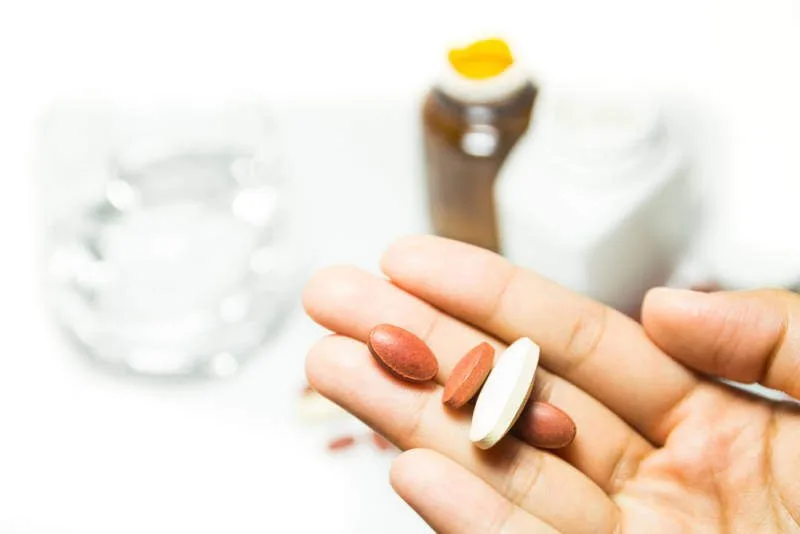High cholesterol, high blood pressure, and anxiety are three common conditions that are often treated with medication. However, sometimes people can’t tolerate these drugs or are reluctant to use them. In these instances, certain dietary supplements are a good alternative option.
Harvard doctor confirms there are natural alternatives
Dr. Donald Levy, is the medical director at the Osher Clinical Center for Integrative Medicine at Brigham and Women’s Hospital. He is also the assistant clinical professor of medicine at Harvard Medical School.
He explained in Harvard Medical School’s Healthbeat that studies have shown certain herbs, vitamins, minerals, and other substances, alone or in combination with traditional treatments, may be effective in treating these conditions. They are also largely safe to use — provided your doctor approves.
Here are 3 common conditions that can be managed with natural supplements
1. High blood pressure
A few supplements have been shown to be effective in reducing high blood pressure, says Dr. Levy. They are as follows:
Magnesium citrate or glycinate
Some people are deficient in the mineral magnesium. Blood tests aren’t good at detecting total magnesium levels inside the body, because much of your body’s magnesium is stored within cells. Many people find the deficiency only after a nutritionist analyzes their diet. In those individuals, supplements can boost magnesium levels and help reduce high blood pressure when taken along with traditional blood pressure treatments. It typically takes up to six weeks for the supplements to show an effect.
However, not everyone should take magnesium. Especially those with kidney disease, says Dr. Levy. To be certain you should consult with your doctor or integrative medicine specialist before taking it.
Lycopene
This is an antioxidant supplement that may also help reduce high blood pressure. Lycopene gives vegetables like tomatoes their red hue. While tomato-based products, including canned sauces, contain lycopene, those foods often have a lot of sodium. So, it’s better in many instances to opt for a supplement. Dr Levy advises to look for one that also contains tomato extract for an added benefit. Typically, people need to take 15 to 25 mg of lycopene daily to see a reduction in blood pressure.
2. High cholesterol
Statins are the most commonly prescribed class of medication to improve high cholesterol. However, there are natural supplement alternatives for people who can’t take them.
Vitamin D3
If you cannot tolerate a statin medication and have a vitamin D deficiency (which Dr. Levy defines as a blood level below 32 nanograms per milliliter), a vitamin D3 supplement could help. Explains Dr. Levy. “It’s interesting, because after taking the supplement, some people are then able to tolerate statins when they couldn’t in the past,” he says.
Phytosterols
Phytosterols (also called plant stanols or sterols) are derived from the cell membranes of plants and can be taken in pill form. They are also found naturally in foods such as nuts, beans, fruits, and vegetables. Studies show that phytosterol supplements can lower “bad” LDL cholesterol by up to 14% in people taking 2,000 to 3,000 milligrams (mg) a day, says Dr. Levy. “When choosing a product, look for a quality seal and also look for a product that contains phytosterol esters.”
Red yeast rice
Dr Levy told Healthbeat, that red yeast rice supplements are made from a type of yeast that is grown on white rice. Red yeast rice has long been used in Chinese medicine. “Modern studies show that people taking 2,400 to 3,600 mg a day for six months were able to reduce their LDL cholesterol by 20% to 25% One 2008 study published in The American Journal of Cardiology found that red yeast rice was also effective in reducing deaths and recurrent heart attacks in nearly 5,000 people who took the supplement after having a heart attack.”
He added, “Look for a high-quality product, because red yeast rice can contain a dangerous contaminant, citrinin, which is a toxin produced by fungus that can cause food poisoning, kidney damage, and immune system problems.”
3. Anxiety
Problems with anxiety are common, especially around the time of menopause.
Chamomile extract which comes from a flower, has long been used as a therapy for anxiety. Anxiety often goes hand in hand with sleeplessness. It’s no surprise that chamomile is also often recommended as a sleep aid. Many people drink chamomile tea, but taking a supplement may be more convenient (and require fewer late-night trips to the bathroom if taken before bed). Studies have found that people who took chamomile supplements saw a significant reduction in anxiety when compared with people who took a placebo, says Dr. Levy. Typically, it’s best to start by taking one 220-mg capsule daily. Look for one that contains 1.2% of a substance called apigenin.
Worried about supplement safety? Here’s what you should consider
Dr Levy explained in Healthbeat that while some supplements are potentially helpful (or at least harmless), a lack of regulatory oversight of these products means that others might be ineffective or dangerous. Some might even contain hazardous contaminants.
“Identifying the safe choices requires a little detective work. Before taking a supplement, always talk to your doctor to make sure that it’s safe for any medical conditions you may have and that it won’t interact with any medications you are taking.”
He added, that although supplement makers must follow FDA rules for good manufacturing practices, the agency does not require testing the estimated 9,000 products on the market to make sure they do contain the ingredients they claim. Or that they don’t contain contaminants, such as dangerous bacteria, arsenic, cadmium, or lead. This means there is no guarantee that any particular product is effective or safe. To add a degree of protection, look for products that have voluntarily gone through quality testing, which is certified by a seal on the packaging.
Resources
Some good ones to look for are those from U.S. Pharmacopeia, ConsumerLab.com, and NSF International.





